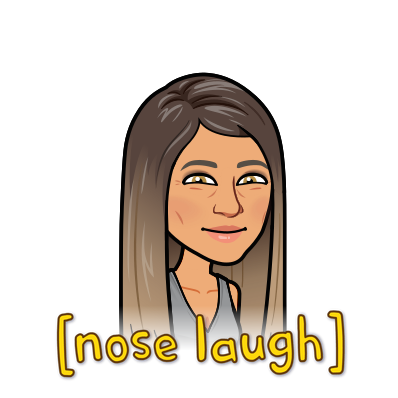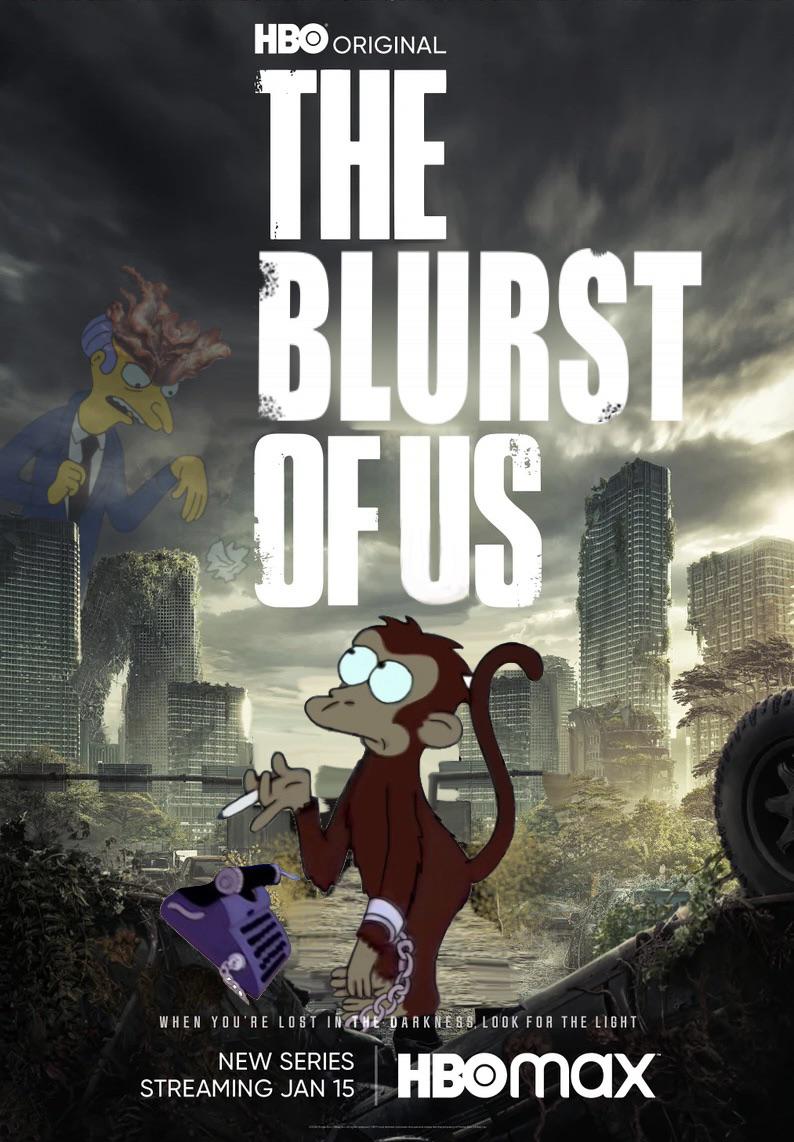Julius Ceasar, Alexander the Great, Genghis Khan and many more…
These people had beliefs and worldviews that were so horribly, by today’s standards, that calling them fascist would be huge understatement. And they followed through by committing a lot of evil.
Aren’t we basically glorifying the Hitlers of centuries past?
I know, historians always say that one should not judge historical figures by contemporary moral standards. But there’s a difference between objectively studying history and actually glorifying these figures.
How is simping them any different from calling them “basically Hitler from the past”? If you’re talking with your feelings, what you are saying is by definition not-objective, like with simps, but also with haters. I doubt you or OP are any more informed on history than the average Lemmy rando. By starting with the desired conclusion, rather than with arguments, the discussion is already beginning on subjective terms.
same feeling as when people talk fondly of “the great roman empire”.
We all exist because of those people’s exploits.
That’s basically where the concept of glory begins.
I don’t understand in what way we wouldn’t exist without their exploits?
Well, take me for example. Both of my grandmothers had to leave Pommern due to the second world war. If Hitler hadn’t started shit I never would’ve been born.
The phrase was "we all exist because of those exploits *, that seems a bigger claim
We all are products of the history we were born into is what I’m saying. If Alexander hadn’t conquered the known world history would have ben different and so would todays world be, inlcuding (or rather excluding) us

(side note: freefall is an awesome webcomic, you should read it!)
I don’t think we glorify them, but we consider them significant figures in history. Remembering and talking/studying history and significant figures allows us to learn more about ourselves as well as learn how things can be done better than they once were. But I don’t really see these people glorified. Nobody calls them heroes or people to emulate.
Once they pass out of living memory, they can be whoever you want them to be. Or you could study them I guess, but that sounds like boring nerd stuff to most people.
Genghis Khan is actually an anti-example, since he’s vilified. It’s not at all clear other kings would have done any different given an unstoppable army, but yet he catches more shit than all his enemies combined.
“…not at all clear other kings would have done any different…”
Is that the standard now? Comparison? He is still unbelievably evil even by comparison to other evil people.
Him and the dynasty he created were one of the most destructive forces in human history and resulted in the horrific deaths of millions of people. By many metrics, they practiced genocide and ethnic cleansing on conquered populations. They destroyed the books of captured people’s and places of worship. They’re also well known for having destroyed farmland and aqueducts to starve out massive numbers of people. They were butchers. Mass murderers on a skill the world had never seen at that time. He erased entire civilizations from history, ones that we still barely know anything about.
Very well-said!
I feel like you’ve entirely ignored the context I said that in.
If you actually want to argue pros and cons for academic purposes (they’re all long dead remember), the other person gave a good summery of the good sides of the Mongol Empire.
The Nazi’s created rocketry as we know it today and made many innovations in medicine and manufacturing.
Are we going to argue the pros and cons of the Nazi party?
This conversation wasn’t even about the Mongol empire it was about Genghis Khan
Hmm. I guess it seems hard to separate Genghis Khan and the Mongol empire to me. Pretty much everything we know about him for sure is as the guy in charge of the Mongol empire. There’s a few stories about him personally enemy chroniclers put down, but they all have that myth-y Washington and the cherry tree feel to them.
I’m starting to think this guy wasn’t very nice!
Most of the things you said are true. What is also true is that he and his descendents established a unified, peaceful empire from Korea to Hungary, from southern Russia to Iran. He unified China, then divided by civil war, and brought in economists and doctors from the Islamic World. He promoted Buddhism, Daoism and Islam, and his successors included Confucians and Christians. He guaranteed safe travel and trade across his empire, as well as religious tolerance and a common set of laws.
He killed thousands (the death tolls are inflated by both his enemies and his own followers - as a warning to those who they were going to attack next), but his actions benefitted millions. How can you form any moral judgement about such a figure? All you can do is try to find out the truth, report it, and let people reach their own conclusions.
So the ends justify the means? Inflicting untold suffering on one group of people is fine if it benefits another one?
This is literally ancient history.
Yes, and? Have you not gotten to the part in your schooling where you look at history to see what can be learnt from it?
Ignoring the insult, we’re talking about Medieval times. They were famously awful to live in for everyone. I’m pretty sure the vast majority of readers won’t think I’m suggesting anything about that period should be replicated in the modern day, unless I explicitly say that.
To be totally clear, I don’t want to bring the Mongol empire back in 2024.
You’re missing the point entirely. The person I was originally responding too was saying that evan though awful things were done to people it’s fine, or justifiable because “millions” benefited from them. If you don’t understand how something like that at its base level can be applicable to modern times, that’s a you issue.
It’s not the specific actions taken or the setting/environment, but the attitude of the ends justifying the means if there’s a net positive.
All you can do is try to find out the truth, report it, and let people reach their own conclusions.
I bet you think you’re taking some sort high road to the effect of “oh I just state the facts, I’m not telling anyone what to think,” while conveniently ignoring the part where the way that you report these facts, or which ones you leave out can very much influence the conclusions people reach.
You stated that Alexander killed many people, but also his actions benefitted millions of people. These two things put together in the way that you did will lead an uninformed person to he conclusion that it’s fine that he killed people because it benefited many others. And maybe that could be true in some contexts, but you completely failed to mention the fact that he didn’t just kill a bunch of people, he executed defeated peoples and sold a whole bunch of people into slavery, which would naturally influence the conclusions a person could come to.
Any narrative will be biased, both in what it says and what it leaves out. But historians have to at least try to be impartial. I’m not a professional historian, so I can have whatever opinion I want.
You stated that Alexander killed many people
Chinggis Khan, not Alexander.
Oops, got my wires crossed with who I was talking about. But my point still stands.
You can have any opinion that you want, I haven’t said that you couldn’t. I was disagreeing with your opinion and expressing my own, you wombat. That’s how discussion works.
Because for centuries, western society has valued one thing above pretty all else: winning.
If someone’s an asshole, but they’ve gotten on top in something, people may say, “They’re an asshole, but hey you gotta admire that they’re so good at [insert subject].”
That’s why so many people admire Ray Kroc. Yeah, so what if he brought McDonald’s to a position of national and international dominance? That doesn’t mean he’s worthy of our respect. If anything, the way he rose to the top, being as disgusting as it was, should mean he’s anything but worthy of our respect.
Victory in something by itself shouldn’t be respected; what you do to get to victory matters equally as much, if not more.
That’s right. They are not glorified as being enlightened or particularly great at things in general. Those figures are idolized because of the power they managed to obtain and their skill in military tactis and strategy.
Exactly.
People glorify Winston Churchill. He was a piece of shit. He was just like Hitler wrt the countries england colonized. But he’s sooooo loved. I hope he’s a human centipede in hell.
The Churchill example I think demonstrates the OP’s misunderstanding, in that all of them did terrible things/were horrible people, but excelled at being effective leaders in the context they were in.
Churchill was a terrible human being, racist, abrasive, homophobic, a drunk etc etc. But he was an outstanding wartime prime minister, because he was a talented war strategist, a compelling speaker and, frankly, had enormous balls.
We can go back and try and just classify every human into the good/bad boxes, but that reduces away all the details that make them so interesting.
British people revere Cromwell too. It’s really something to behold for Irish people.
The British really do love a ‘charismatic’ murderer.
That would be absolute horrible punishment to the person behind him in the centipede.
Its hell. You can loop him around.
Then he’d be eating his own ass, that’s hardly punishment
I did not think of that aspect. But wouldn’t that just be the case in the human centipede too?
Do we glorify them, or do we just learn about them because they had a huge impact on the world?
I don’t think I’ve ever heard of anyone holding Genghis Khan up as a role model.
And Julius Caesar is literally known for being hated and brutally murdered by those closest to him because he was such a shit.
I don’t think I’ve ever heard of anyone holding Genghis Khan up as a role model.
There is a huge statue of him in Mongolia, and one of the apparently most popular Mongolian song is titled “In praise of Genghis Khan” so now you heard.
People with a breeding kink and weird desire to populate the world with their shitty sperm abso-fucking-lutely look up to Genghis Khan and the whole “so many people are related to Genghis Khan because he fathered so many children with so many women” thing.
See: Elon Musk. Or even better, don’t see him.
Go to Mongolia and you will see it.
Genghis Khan isn’t as glorified as the rest, because, …, he’s not white/European. He’s glorified in Mongolia and some other Asian countries, but not in the western world.
But the rest of them? Yes, we do. Maybe not always so overtly, but the implied greatness of most of these figures is tied to how much wars they waged and how many peoples they subjugated. And if you simply go to any primary or middle school and ask the kids who are into history, you’ll find lots of boys (mostly boys) who will rave on about how this or that was the absolute GOAT.
We literally call Alexander “the Great”, and Caesar’s name was adopted as a title more than once by powerful rulers (e.g. Kaiser and Czar). Sounds like glorification to me.
…because that’s his name. It was how people referred to him. It’s not like people are going “He’s Grrrreat!” like Tony the Tiger.
Is this just a case of “great” having changed meaning subtly? Now it’s a superlative more than anything else, but in this usage I feel it meaning is much more about scale of what they did. Not a judgment on the morality of what they did.
Homer’s crime was very great!
Great doesn’t mean good nor does it mean benevolent.
In some countries, it’s so “machismo” that being a descendant of Genghis Khan gets you a consumer’s discount in some establishments.
Probably more people are descendents of Ghengis Khan than aren’t. Certainly nothing special.
Either way, it’s definitely a close call.
The guy killed by the girl he was trying to rape becoming a symbol of machismo is oddly fitting.
Exactly. I was kinda confused when I read the question because I dont think they are glorified at all. They probably arent shamed as much as Hitler for example because they dont have such a direct impact on our lives.
A good though to have in ones mind when thinking about this topics is that you will probably be seen as someone horrible and barbaric with evil-morals by future standards.
It’s not a modern standards thing, Genghis Khan was seen as a complete monster in his own time.
Probably by people conquered by him. People riding by his side probably would have a different view of him.
The comparison to the H man is apt. One of the only reasons this is different is because we had the ability to record and see the outcome of those actions. They were just as brutal in the past, but we don’t have photos and videos of them.
Julius Ceasar wasn’t so bad. Parenti’s book The Assassination of Julius Caesar: A People’s History of Ancient Rome is an interesting read, looking at his assassination as a reaction from the ruling class who felt threatened by his reformist policies that benefited the lower classes.
In general though we do seem to value the lives and experiences of people in even recent history as lesser. I don’t know why, it’s a good question.
I think you have to ignore large parts of his legacy to consider a genocidal warlord like Caesar “not so bad”.
Pursuing the agenda of the populares may have made him less domestically odious than some of his fellow patricians from the optimates, but he was still a member of the ruling class monopolizing power in his person. On top of the whole brutal genocidal warlord thing.
We also glorify horrible people from the present, so why not?
But Alexander the Great literally has the Great in his name.
Not in every culture/language. It’s like knighthood, people are going to call a knight “sir” even if they are at odds with the British.













